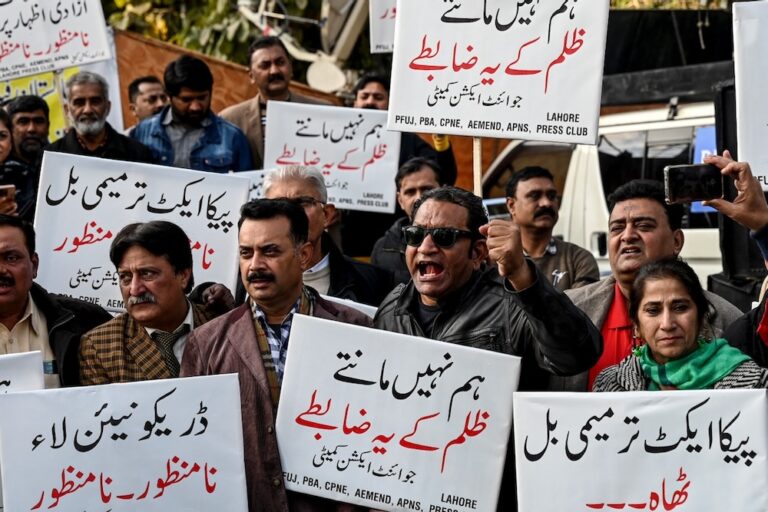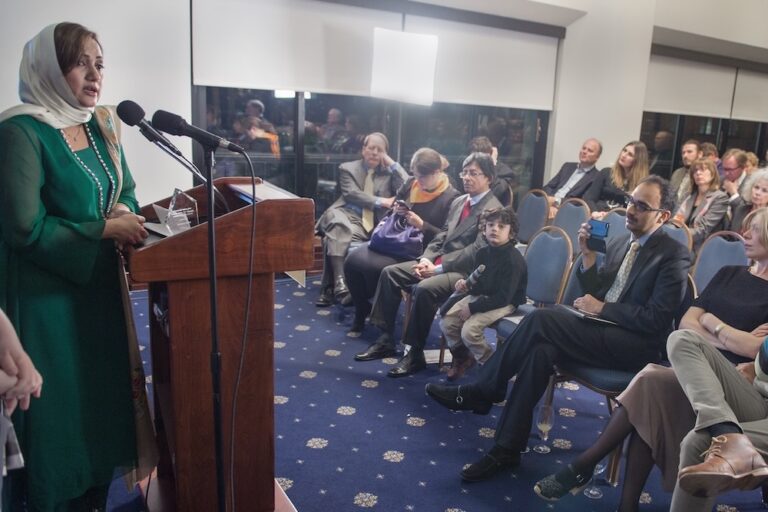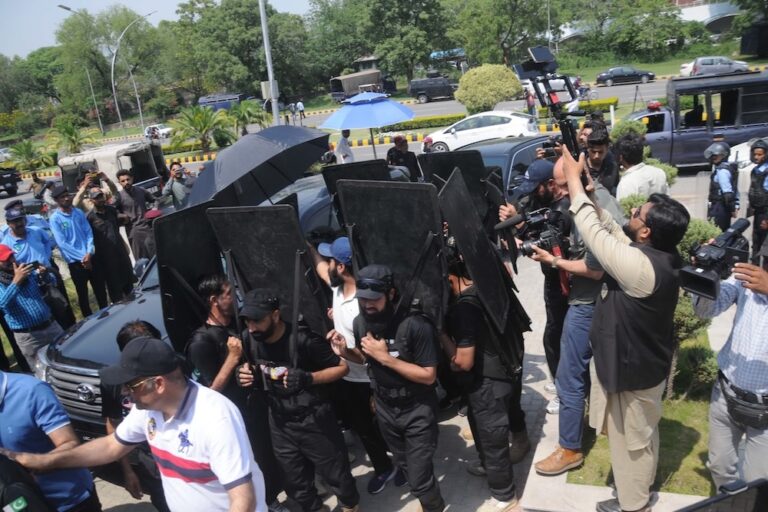(ARTICLE 19/IFEX) – The following is an ARTICLE 19 letter to the Commonwealth re the mission of the Commonwealth Ministerial Action Group: 27 October 1999 HE Chief Emeka Anyaoku Secretary-General of the Commonwealth Commonwealth Secretariat Marlborough House Pall Mall London URGENT: BY FAX 0171 930 2299 Dear Secretary General We welcome the decision of the […]
(ARTICLE 19/IFEX) – The following is an ARTICLE 19 letter to the
Commonwealth re the mission of the Commonwealth Ministerial Action Group:
27 October 1999
HE Chief Emeka Anyaoku
Secretary-General of the Commonwealth
Commonwealth Secretariat
Marlborough House
Pall Mall
London
URGENT: BY FAX 0171 930 2299
Dear Secretary General
We welcome the decision of the Commonwealth Ministerial Action Group to send
a delegation of four Commonwealth government ministers to Pakistan following
the military coup d’état led by General Pervez Musharraf.
We hope that the mission will contribute not only to bringing about a swift
return to democratic rule but also to setting in train a process of
far-reaching legal and institutional reform. Both are necessary to guarantee
freedom of expression and other human rights in Pakistan, consistent with
Commonwealth countries’ commitments under the Harare Principles.
In order to guarantee freedom of expression, a cornerstone of democracy and
an essential prerequisite for the enjoyment of other human rights, we
consider a number of key reforms to be necessary in Pakistan. We ask that
you draw the attention of the members of the delegation to these reforms, as
described below. Further, we urge these points be taken into account by CMAG
in its consideration of the future status of Pakistan within the
Commonwealth.
Our recommendations for reform are as follows:
– Immediate establishment of a timetable for democratic elections.
– Protection of the individual rights of all those detained in the aftermath
of the coup, including those under house arrest, including their right to be
informed of any charges brought against them, to be brought promptly before
a judge, and to be tried fairly.
– Repeal or amendment of repressive laws, including the following: –
Contempt of Court Act (1976);
– Sections 11-A and 12 of the Security of Pakistan Act (1952);
– Maintenance of Public Order Ordinance (1960), Sections 6 and 16, dealing
with national security;
– Sections 123-A and 124-A of the Pakistan Penal Code and Section 99-A of
the Criminal Procedure Code, dealing with treason and sedition;
– Registration of Printing Press and Publication Ordinance (1997);
– Sections 295-B, 295-C, 298-B and 298-C of the Pakistan Penal Code, dealing
with blasphemy;
– Section 144 of the Pakistan Penal Code, dealing with restriction of
association.
We are also concerned about laws governing taxation, government advertising
and newsprint allocation, all of which have been used in the recent past to
censor media workers. We urge you to investigate the status of recent
proposals to place onerous and illegitimate restrictions on the operation of
non-governmental organisations.
ARTICLE 19 would be happy to provide further material on the matters
mentioned above.
We wish all success to the delegation and look forward to the publication of
its conclusions and recommendations in the near future.
Yours sincerely
Andrew Puddephatt
Executive Director
Recommended Action
Similar appeals can be sent to:
Appeals To
HE Chief Emeka Anyaoku
Secretary-General of the Commonwealth
Commonwealth Secretariat
Marlborough House
Pall Mall
London, England
Fax: +171 930 2299
Please copy appeals to the source if possible.


